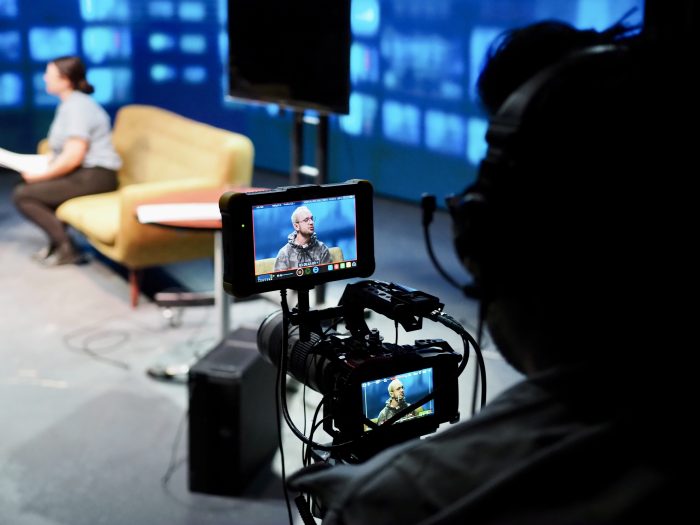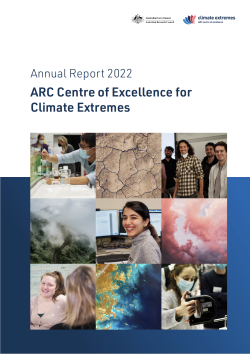The ARC Centre of Excellence for Climate Extremes has made a concerted effort in 2023 to ensure that researchers gain long-term communications and media skills well into their future careers.
Rather than focus on low-value and short-term media opportunities, the Centre has focused on building structure and skills for researchers. This has been achieved in three primary ways:
Collaborative Practice Content
Utilising climateextremes.org.au and the Centre’s social media channels, the Engagement and Impact team has used these platforms to help researchers practise their skills as science communicators.
Researchers might collaboratively write an article with the Engagement and Impact team or be filmed for a video explaining their research. The Centre has
focused on using these opportunities primarily to teach effective science communication skills.
Researchers engage in collaborative drafting and editing process, which includes receiving feedback on their work, and eventually leads to publication on the
Centre’s website and social media platforms.
Setting up Researchers with Long-term Structures and Relationships
Researchers have been supported in using services such as the Australian Science Media Centre (ASMC) to maintain an ongoing presence in the Australian media.
The ASMC holds a database of scientists that is made available to Australian journalists. The service is independently funded by Australian universities to identify media opportunities and support Australian research and scientists.
By setting up Centre of Excellence researchers through this service, researchers have ongoing opportunities and long-term media support. In 2023, some 21 of our researchers were listed in the ASMC’s database.
The Engagement and Impact team has complemented these opportunities by providing one-on-one mentoring, practice sessions and media commentary feedback to
help early career researchers engage with the media.

Media Training in Real Studio Environments
Partnering with Humdinger Studios based in Melbourne, the Centre of Excellence tailored a science communications training course that utilised a real TV and podcast studio. In 2023, over 30 Centre researchers had the opportunity to be interviewed in a real TV studio and to practise sharing their personal stories and research for public audiences.
‘I had a lot of fun recently doing some media training! I’ll be better prepared for any future media interview now… these kinds of opportunities are what makes working at the ARC Centre of Excellence for Climate Extremes so great’ — Dr Doug Richardson
The training provided a safe, “fish-out-of-water” opportunity whereby researchers could get a feel for the environment of a TV and podcast studio, without the pressure of “going live”. A number of researchers from the training sessions have since gone on to do live TV and radio appearances, including with Weekend Sunrise on Channel 7 and the ABC News Channel.
ARC Centre of Excellence for Climate Extremes – Annual Report 2023
From the Chair of the Advisory Board
Climate Science Leaders of the Future
Weather and Climate Interactions Research Program
Attribution and Risk Research Program
Ocean Extremes Research Program
Computational Modelling Systems
Governance, Management and our Commitment to Equity, Diversity and Inclusion

